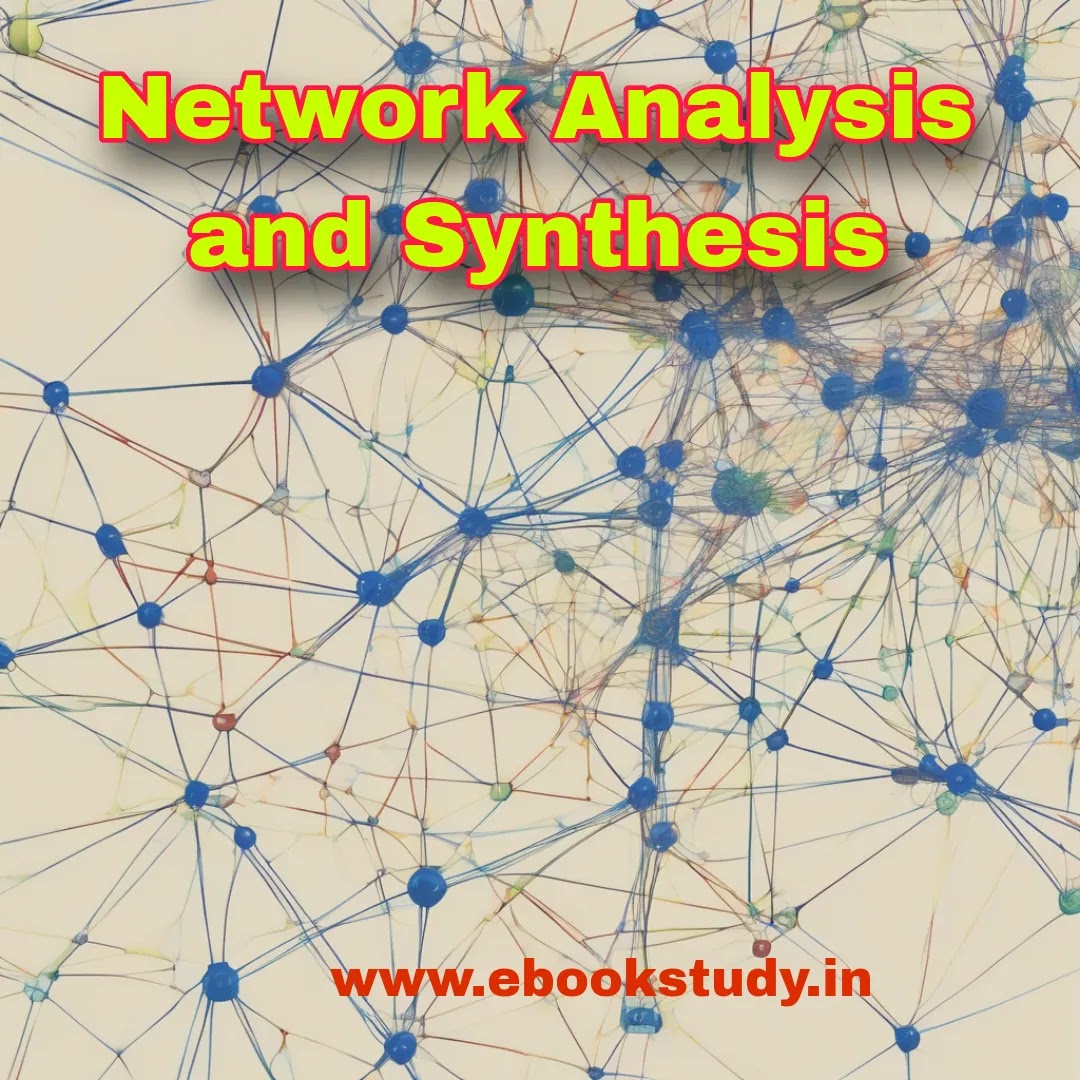Network analysis and synthesis
Network analysis and synthesis are essential components of electrical engineering that involve the study, analysis, and design of electrical networks. Network analysis focuses on understanding and characterizing the behavior of existing networks, while network synthesis involves designing and realizing networks to meet specific requirements. In this article, we will explore the key concepts and techniques involved in network analysis and synthesis.
You can download Network analysis and Synthesis Notes Free of cost....
 |
| Network Analysis and Synthesis book |
1. Network Analysis:
Network analysis involves the systematic study of electrical networks to determine various parameters, such as voltage, current, power, and impedance. It aims to understand the behavior and performance of electrical networks under different operating conditions. Key techniques used in network analysis include:
- Nodal Analysis: Nodal analysis is a method that uses Kirchhoff's Current Law to analyze the voltages and currents at different nodes in a network. It is particularly useful for analyzing complex networks with multiple branches and nodes.
- Mesh Analysis: Mesh analysis is a technique that uses Kirchhoff's Voltage Law to analyze the currents and voltages in different loops or meshes of a network. It is commonly used for networks with multiple loops.
Network analysis and Synthesis Notes download
- Superposition Theorem: The superposition theorem states that in a linear network with multiple sources, the response can be determined by calculating the contributions of each source individually. It simplifies the analysis of complex networks with multiple sources.
- Thevenin's Theorem: Thevenin's theorem allows a complex network to be replaced by an equivalent circuit consisting of a voltage source and a resistor. It simplifies the analysis of networks by reducing them to simpler equivalent circuits.
- Norton's Theorem: Norton's theorem is similar to Thevenin's theorem but replaces the complex network with a current source and a resistor. It provides an alternative method for simplifying network analysis.
2. Network Synthesis:
Network synthesis involves the design and realization of electrical networks to meet specific requirements. It encompasses the synthesis of filters, amplifiers, communication systems, and other complex network structures. Key techniques used in network synthesis include:
- Filter Design: Network synthesis techniques are used to design filters with desired frequency response characteristics. Different types of filters, such as low-pass, high-pass, band-pass, and band-stop filters, can be designed using techniques like Butterworth, Chebyshev, and Elliptic filter designs.
- Amplifier Design: Network synthesis techniques are used to design amplifiers that amplify and shape electrical signals. Amplifier design involves selecting appropriate circuit elements and configurations to achieve desired gain, bandwidth, and distortion characteristics.
- Communication System Design: Network synthesis techniques are used to design communication systems, such as modulation/demodulation schemes, transmission lines, and antennas. Communication system design involves optimizing the system for efficient transmission and reception of signals.
3. Network Optimization:
Network optimization involves maximizing or minimizing certain parameters, such as power, bandwidth, or cost, while meeting specific design constraints. Optimization techniques, such as linear programming, genetic algorithms, and particle swarm optimization, can be applied to network analysis and synthesis problems to achieve optimal design solutions.
Network analysis and Synthesis Notes download
Conclusion:
Network analysis and synthesis are essential tools in electrical engineering for understanding, analyzing, and designing electrical networks. Network analysis techniques help engineers understand the behavior and performance of networks, while network synthesis techniques enable the design and realization of networks to meet specific requirements. By utilizing these techniques, engineers can design and optimize electrical networks for a wide range of applications, including power systems, telecommunications, electronics, and signal processing. Network analysis and synthesis play a crucial role in developing efficient and reliable electrical systems that are essential for modern technological advancements.
Desclaimer |
|---|
| ebookstudy.in does not own this book, neither created nor scanned. we just providing the link already available on internet. if any way it violates the law or has any issue than kindly Contact us. raipur.trc@gmail.com |
दोस्तों अगर आपको किसी भी प्रकार का प्रश्न है या किसी प्रकार की बुक की आवश्यकता है तो आप नीचे कमेंट बॉक्स में कमेंट कर सकते हैं, आपको किसी भी परीक्षा की जानकारी way2exam में मिल जाएगी|
दोस्तों यदि आपको किसी भी प्रकार का Ebook चाहिए तो आप टिप्पणी कर सकते हैं आप हमसे Facebook Page से भी जुड़ सकते हैं दैनिक अपडेट के लिए|
यदि आपको Ebook डाउनलोड करने में कोई समस्या आ रही है तो आप हमसे संपर्क कर सकते हैं
Email:-raipur.trc@gmail.com


0 comments: